President Yoon's three hours of chaos: what was South Korea leader thinking?
A surprise declaration of martial law ignited protests and turmoil overnight
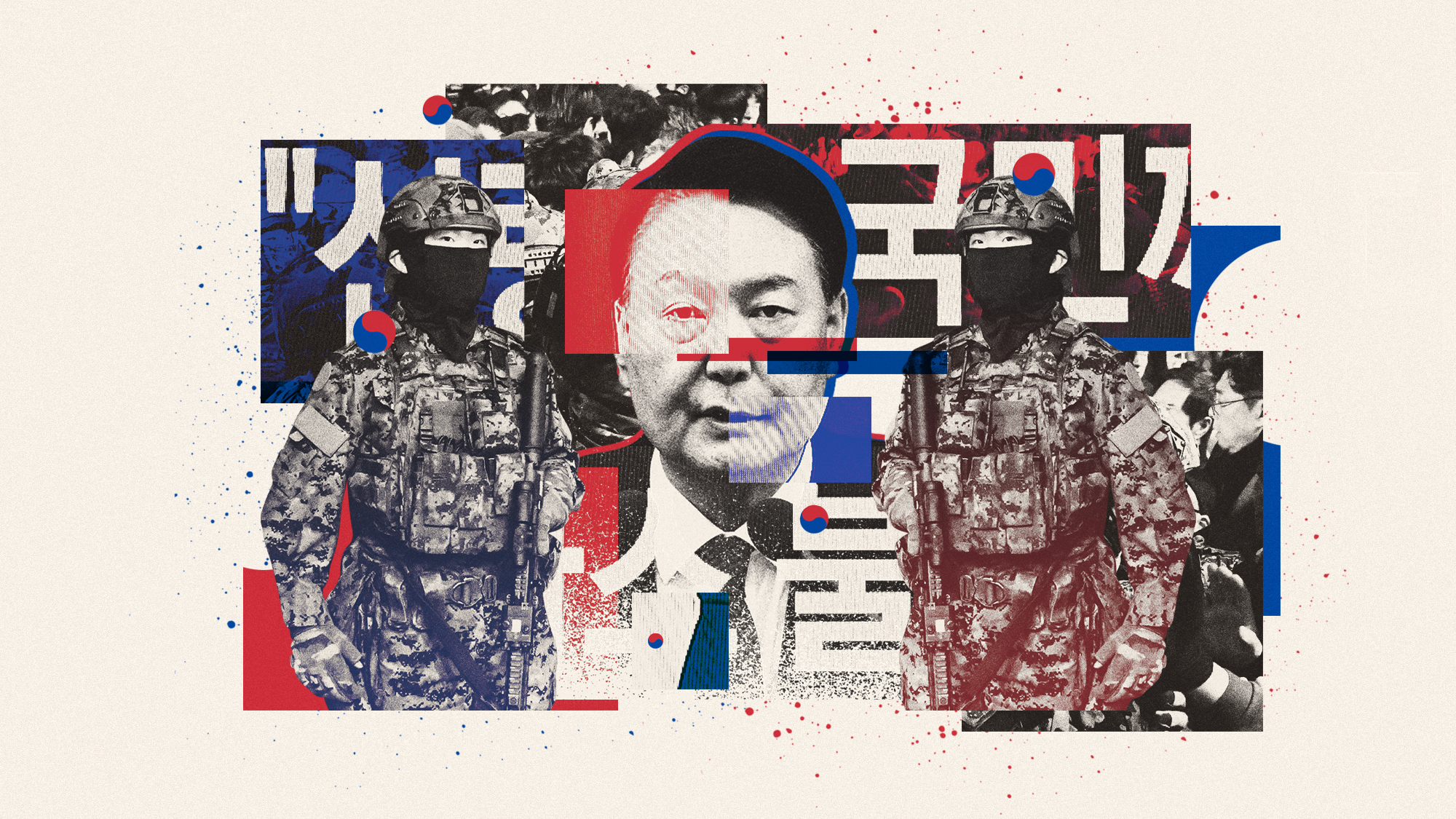
A free daily email with the biggest news stories of the day – and the best features from TheWeek.com
You are now subscribed
Your newsletter sign-up was successful
Yoon Suk Yeol's late-night declaration and then reversal of martial law in South Korea came as a surprise to everyone, even some in his own administration.
The president blamed pro-North Korean sympathisers and anti-state activities inside opposition parties for the decision to hand emergency rule to the military on Tuesday night, in a move that instigated nationwide anxiety and confusion. Already "deeply unpopular and under growing pressure", Yoon's use of the "nuclear option" to try and save his presidency will almost certainly see him forced to resign, if not face more severe consequences, said the BBC.
What did the commentators say?
Yoon's move was an "act of desperation", one of a "boxed-in" president who is "isolated and impulsive", said Christian Davies and Song Jung-a in the Financial Times. Since narrowly taking office in 2022, he has faced mounting problems, including a "slowing economy, historically low approval ratings and an opposition-controlled parliament" and alleged corruption scandals involving his wife.
The Week
Escape your echo chamber. Get the facts behind the news, plus analysis from multiple perspectives.

Sign up for The Week's Free Newsletters
From our morning news briefing to a weekly Good News Newsletter, get the best of The Week delivered directly to your inbox.
From our morning news briefing to a weekly Good News Newsletter, get the best of The Week delivered directly to your inbox.
His declaration of martial law was an apparent attempt to "rally rightwing political forces behind him", but that has "backfired spectacularly" and he is now "more politically and legally exposed than ever".
However, despite the political difficulties Yoon was facing, the move may not entirely have been out of desperation but one "of anger", suggested Myunghee Lee on The Conversation. Having already been in an "incredibly weak position", the president must have known that "calls for impeachment" may be "intensified by his actions" if he declared martial law.
He may have "calculated politically" that it could see him "gain support from his core base", but now his "autocratic" and "authoritarian tendencies" are "amped up for the world to see".
There were "some clues" in Yoon's speech as to "what he was thinking", and he was clearly "frustrated" with the assembly, which has recently slashed the government budget and left him a "lame duck" president, said Laura Bicker at the BBC. He called the assembly a "den of criminals" and a "monster that destroys the liberal democratic system", but it is clear he "misread his country and its politics" when deciding to declare martial law, said Bicker.
A free daily email with the biggest news stories of the day – and the best features from TheWeek.com
Yoon has not been seen since dramatically reversing his decision just hours later. On Wednesday, his "staff offered to resign en masse", while more "protests erupted", said Al Jazeera. A motion has been filed to introduce an impeachment bill, but while some members of the president's own party "also strongly opposed his martial law declaration" it is "unclear" how many of them will side with the opposition in voting to impeach him.
What next?
The "sordid episode" is one that "speaks volumes about the state of South Korean democracy" and the political system is now facing an "enormous stress test", said The Economist. Yoon's "extreme measure" also "points to a deeper malaise" and a political landscape where "polarisation has become deeply entrenched" and opponents view "each other as mortal enemies".
South Korea has been a democratic republic only since ousting its last de facto dictator Chun-Doo-hwan in 1987, but its system is clouded by "misbehaviour by political leaders" and "aggressive criminal prosecutions of them" which have become "all too common". There is little expectation that Yoon can continue as president after the "latest fiasco", but it perhaps presents an "opportunity for the country to reflect and regroup", or it could simply "fuel further division and enmity".
Richard Windsor is a freelance writer for The Week Digital. He began his journalism career writing about politics and sport while studying at the University of Southampton. He then worked across various football publications before specialising in cycling for almost nine years, covering major races including the Tour de France and interviewing some of the sport’s top riders. He led Cycling Weekly’s digital platforms as editor for seven of those years, helping to transform the publication into the UK’s largest cycling website. He now works as a freelance writer, editor and consultant.
-
 6 of the world’s most accessible destinations
6 of the world’s most accessible destinationsThe Week Recommends Experience all of Berlin, Singapore and Sydney
-
 How the FCC’s ‘equal time’ rule works
How the FCC’s ‘equal time’ rule worksIn the Spotlight The law is at the heart of the Colbert-CBS conflict
-
 What is the endgame in the DHS shutdown?
What is the endgame in the DHS shutdown?Today’s Big Question Democrats want to rein in ICE’s immigration crackdown
-
 Will increasing tensions with Iran boil over into war?
Will increasing tensions with Iran boil over into war?Today’s Big Question President Donald Trump has recently been threatening the country
-
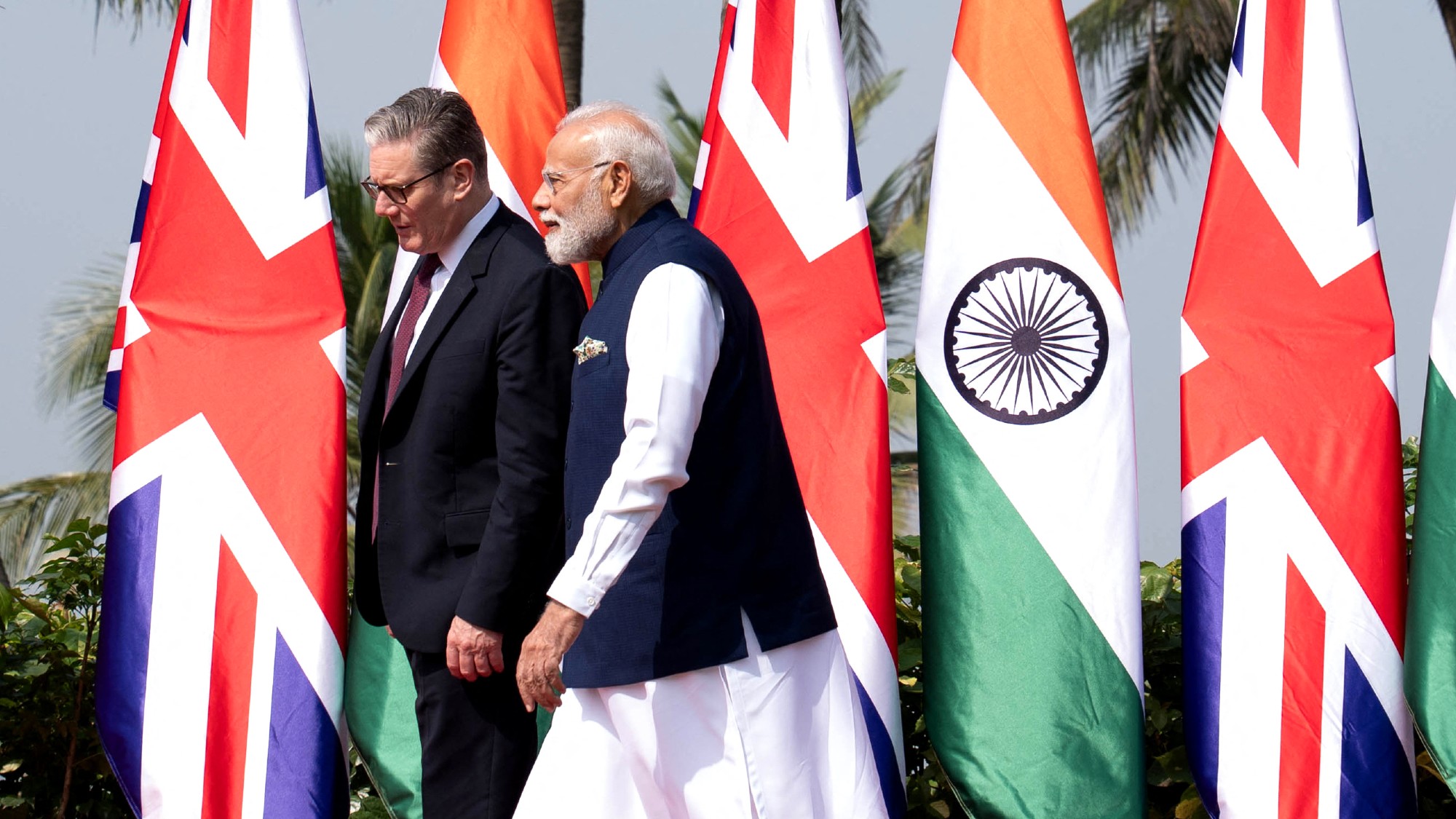 Will Starmer’s India visit herald blossoming new relations?
Will Starmer’s India visit herald blossoming new relations?Today's Big Question Despite a few ‘awkward undertones’, the prime minister’s trip shows signs of solidifying trade relations
-
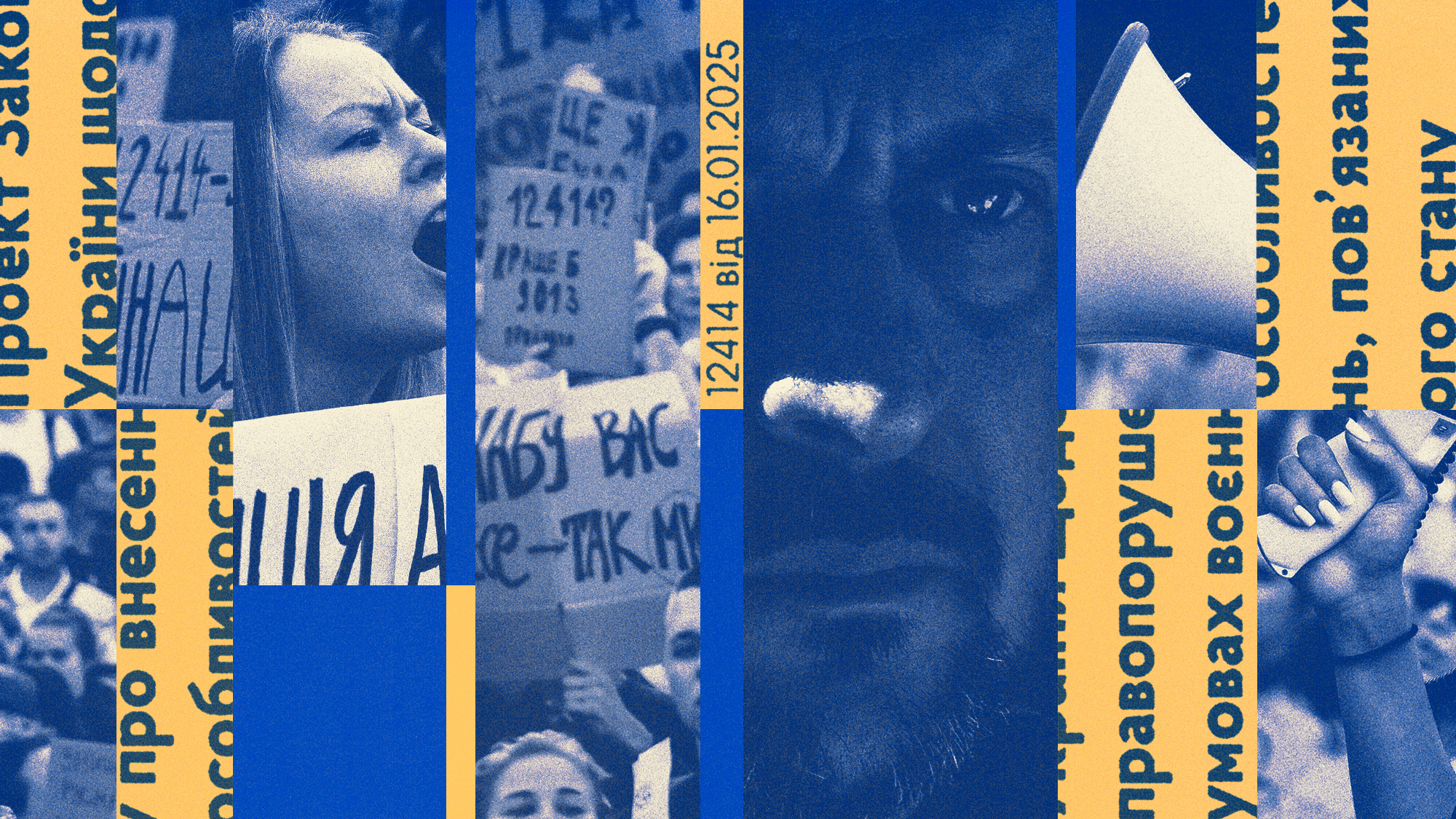 Why are Ukraine's anti-corruption issues roaring back into focus now?
Why are Ukraine's anti-corruption issues roaring back into focus now?TODAY'S BIG QUESTION A new bill curbing anti-corruption bodies prompted Ukraine's first mass protests against President Volodymyr Zelenskyy in years. Where are the roots of this domestic unrest, and what could it mean for Ukraine's future?
-
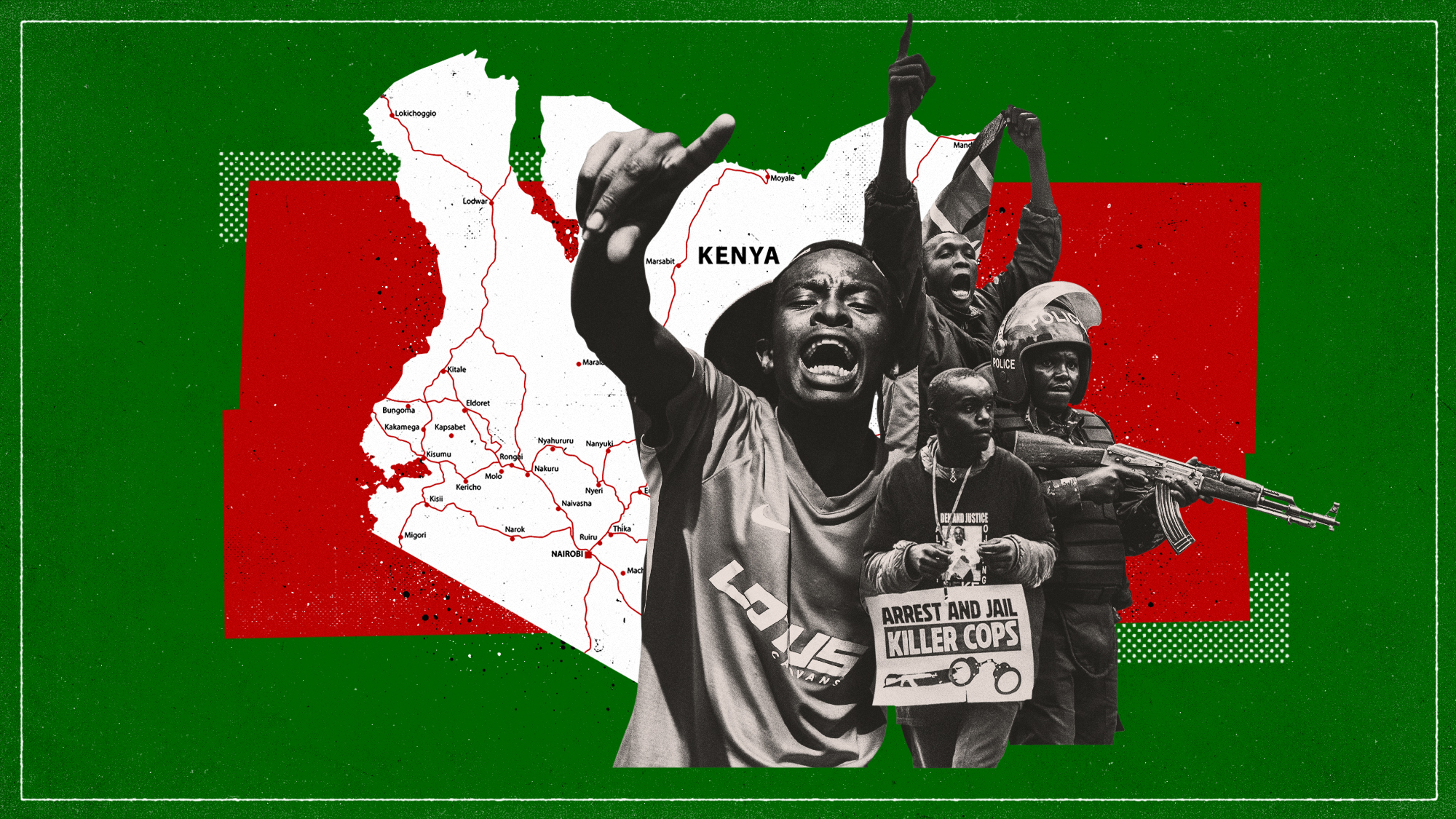 One year after mass protests, why are Kenyans taking to the streets again?
One year after mass protests, why are Kenyans taking to the streets again?today's big question More than 60 protesters died during demonstrations in 2024
-
 How developed was Iran's nuclear program and what's left now?
How developed was Iran's nuclear program and what's left now?Today's Big Question Israel and the United States have said different things about Iran's capabilities
-
 After Israel's brazen Iran attack, what's next for the region and the world?
After Israel's brazen Iran attack, what's next for the region and the world?TODAY'S BIG QUESTION Following decades of saber-rattling, Israel's aerial assault on Iranian military targets has pushed the Middle East to the brink of all-out war
-
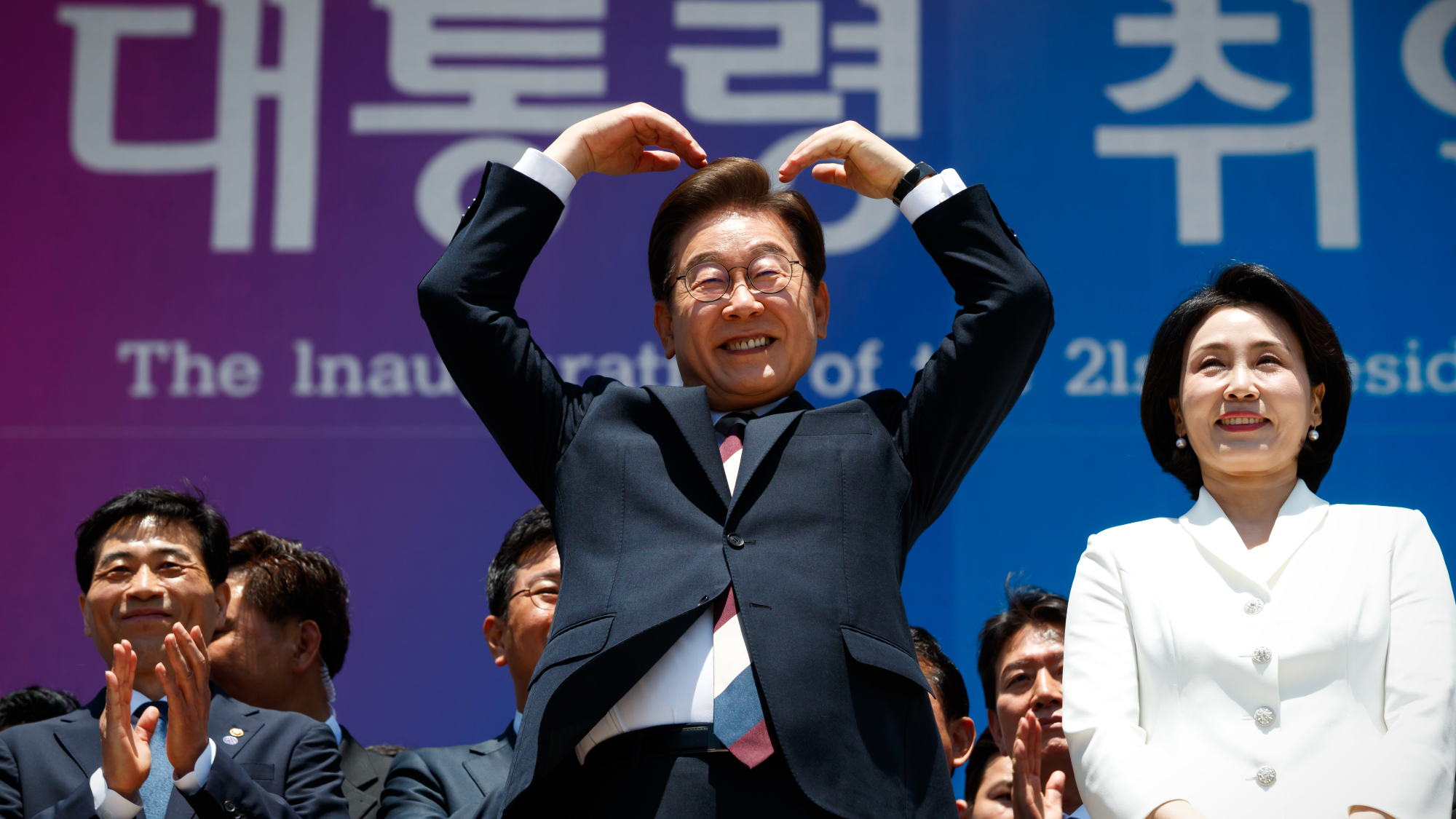 South Korea elects liberal Lee as president
South Korea elects liberal Lee as presidentspeed read Lee Jae-myung, leader of the Democratic Party, was elected president following months of political instability in the wake of Yoon Suk Yeol's impeachment
-
 Why are military experts so interested in Ukraine's drone attack?
Why are military experts so interested in Ukraine's drone attack?TODAY'S BIG QUESTION The Zelenskyy government's massive surprise assault on Russian airfields was a decisive tactical victory — could it also be the start of a new era in autonomous warfare?